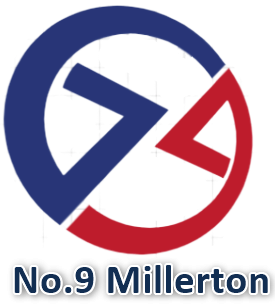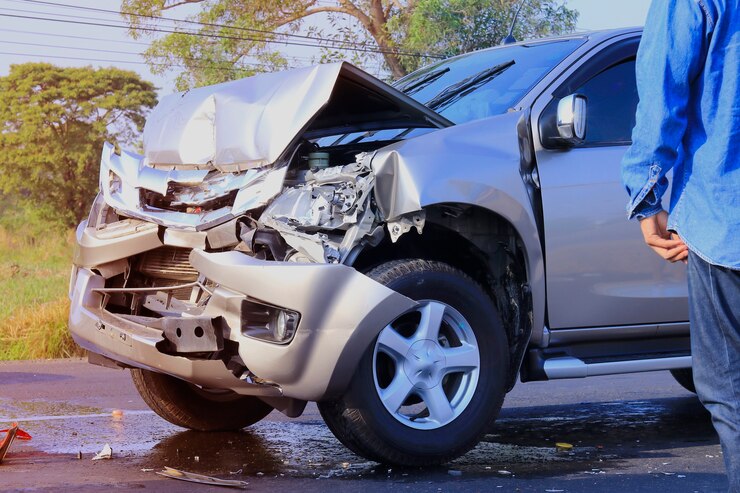Trucking accidents are among the most devastating incidents on the road, often resulting in severe injuries and significant property damage. If you or a loved one has been involved in a truck crash, understanding when and how to file a claim for truck crash injuries is crucial. This comprehensive guide will walk you through the key steps and considerations in the aftermath of a trucking accident.
Immediate Actions After a Trucking Accident
The moments immediately following a trucking accident are critical. Prioritize the safety of all involved parties and seek medical attention for any injuries. Contact law enforcement to report the incident, ensuring an official accident report is filed. Exchange information with the truck driver, gather witness statements, and document the scene with photos if possible. This groundwork will prove invaluable when filing a claim later.
Determining Liability in Trucking Accidents
Identifying the party responsible for the accident is essential for a successful claim. Liability in trucking accidents can extend beyond the truck driver to include the trucking company, manufacturer, or even third-party contractors. Investigate the circumstances leading to the crash, examining factors such as driver fatigue, vehicle maintenance, or defective equipment. This investigation will help establish a strong foundation for your claim.
Understanding Statutes of Limitations
Time is of the essence when it comes to filing a claim for truck crash injuries. Each state has a specific statute of limitations, setting the maximum time frame within which legal action can be taken. It is crucial to be aware of and adhere to these deadlines to avoid losing the right to seek compensation. Consulting with a personal injury attorney promptly can ensure that you meet all relevant timelines.
Seeking Medical Attention and Documenting Injuries
Injuries sustained in trucking accidents can range from minor to life-altering. Seeking immediate medical attention is crucial not only for your well-being but also for building a solid case. Medical records, diagnostic reports, and photographs of injuries can serve as vital evidence when pursuing compensation. Ensure that you follow through with all recommended treatments and keep thorough records of medical expenses.
Communicating with Insurance Companies
Once the immediate aftermath has been addressed, it’s time to consult the Truck Crash Guide and communicate with insurance companies. Report the accident promptly to your insurance provider and, if applicable, the trucking company’s insurer. Avoid providing detailed statements without consulting an attorney, as insurers may use such information to minimize your claim. Having legal representation during these communications can help protect your rights and maximize your potential compensation.
Consulting with a Personal Injury Attorney
Navigating the complexities of a trucking accident claim can be challenging, especially when dealing with powerful trucking companies and their insurers. Hiring a qualified personal injury attorney experienced in trucking accidents is crucial. An attorney can assess the strength of your case, guide you through legal processes, and negotiate with insurance companies on your behalf.
Gathering Evidence for Your Claim
Building a strong case requires comprehensive evidence. Your attorney will assist in collecting and organizing all relevant documents, including accident reports, witness statements, medical records, and any available surveillance footage. This evidence will help establish the negligence or fault of the responsible parties, strengthening your claim for compensation.
Calculating Damages
Determining the extent of damages is a critical aspect of a trucking accident claim. Damages may include medical expenses, property damage, lost wages, pain and suffering, and future medical costs. Your attorney will work with you to calculate a fair and comprehensive compensation amount that reflects the full impact of the accident on your life.
Negotiating a Settlement
Many trucking accident claims are resolved through negotiations rather than going to trial. To get a settlement, your lawyer will bargain with the at-fault party’s insurance provider. During this process, your lawyer will advocate for your best interests, aiming to secure a compensation package that adequately addresses your current and future needs.
Filing a Lawsuit if Necessary
If negotiations fail to yield a satisfactory resolution, filing a lawsuit may be the next step. Your attorney will guide you through the legal proceedings, representing your interests in court. It’s essential to be prepared for a potentially lengthy process, but taking this step may be necessary to ensure that you receive fair compensation for your truck crash injuries.
Conclusion
Trucking accidents can have severe and lasting consequences, making it crucial to understand the process of filing a claim for injuries. By taking immediate actions, determining liability, adhering to statutes of limitations, and seeking legal representation, you can navigate the complexities of a trucking accident claim successfully. Remember that consulting with a personal injury attorney is a crucial step to ensure your rights are protected and that you receive the compensation you deserve for the physical, emotional, and financial toll of the accident.




